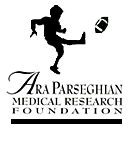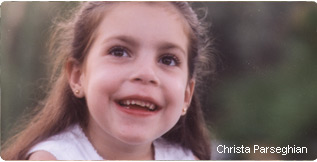 | |
Join us in the Fight Against Niemann-Pick Type C Disease |
|
|
 |
About Niemann-Pick Type CDrug Trial |
|
|
A drug trial has recently been concluded with Zavesca (OGT 918 or Miglustat) with NP-C patients. This compound proved to be effective in NP-C mice in a research project funded by the Ara Parseghian Medical Research Foundation in slowing the progression of the disease. It has shown some positive benefits with some NP-C children and adults. The Phase 1-2 trial was conducted with NP-C patients in the UK and the United States. There was an adult and a pediatric trial. If you have questions about the trial, the results or about the drug Zavesca, please contact Dr. Marc Patterson at Mayo Clinic in Rochester, MN who was the trial coordinator: Patterson.marc@mayo.edu or Dr. J.E. Wraith in Manchester, UK. Zavesca has not been FDA approved for NP-C patients. It has however, been approved for use with another disease. Consequently, Zavesca is being taken by a number of NP-C patients off label, depending of whether or not their insurance companies will cover the cost as it is very expensive. Important Information for Patients taking Zavesca Miglustat animal toxicology data Long term (two year) animal toxicity studies of miglustat have recently been reported. Mice given oral miglustat at doses of 210 (16 times the human dose), 420 and 840/500 mg/kg/day developed diarrhea, abdominal swelling and rectal prolapse. Microscopic examination of the large intestine showed inflammatory lesions. At the highest doses (840/500 mg/kg/day - 65/38 times the human dose) there was an increased number of tumors in the large intestine. Rats given the same doses of miglustat for two years did not develop such changes. Male rats given miglustat in doses of 30, 60 and 180 mg/kg/day had an increased incidence of benign Leydig cell (testicular) tumors. These rats normally have a much higher incidence of Leydig cell tumors than humans. There was no increase in tumors in other organs. We understand that many families will be concerned by these reports, and wish to place these in perspective:
We suggest that careful monitoring of gastrointestinal side effects such as is already performed, with further investigation for individuals who have persistent symptoms despite change in diet, dosage reduction or use of loperamide, is appropriate for individuals taking miglustat. You should speak to your physician directly to discuss any concerns that have not been addressed by this message. Sincerely, Marc C. Patterson, MD, FRACP Pediatric Neurology Mayo Clinic Rochester, Minnesota, USA Dr. J.E. Wraith (Consultant Paediatrician) United Kingdom |


